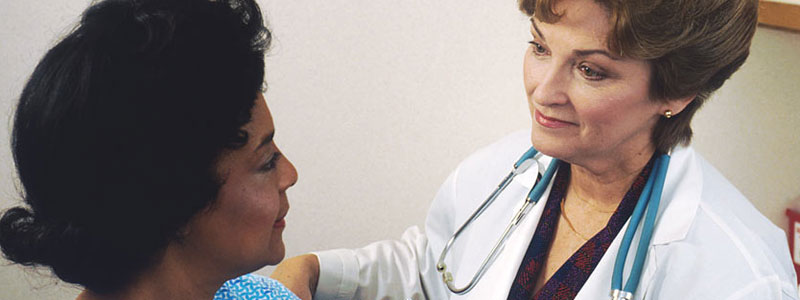5 Things You Should Never Say to an Insurance Adjuster
If you file a claim with an insurance company (yours or the at-fault party) after a car accident, then you will have to deal with an insurance claims adjuster. A claims adjuster is responsible for verifying the facts of your original claim and making sure that the insurance company only pays what they absolutely have […]

November 22, 2019

If you file a claim with an insurance company (yours or the at-fault party) after a car accident, then you will have to deal with an insurance claims adjuster. A claims adjuster is responsible for verifying the facts of your original claim and making sure that the insurance company only pays what they absolutely have to.
There are 5 things you absolutely shouldn’t say to an insurance adjuster when they’re going over your case.
“It was my fault.”

You should never admit fault after a car accident. This one seems obvious, but after a high-stress accident you probably aren’t thinking about how admitting fault may affect your settlement weeks or months down the road.
You shouldn’t volunteer to take on more fault than is evident from the wreck itself. Determining fault should be based off of the police report, and witness statements, but it can easily devolve into a he-said she-said situation.
Saying “It was my fault” out of guilt or fear will likely affect the amount of fault you are assigned, even if it wasn’t your fault at all. Indiana is a comparative fault state, which means fault is rarely 100 percent to one driver and 0 percent to the other. The higher the percentage of fault, the smaller the amount you will be able to recover. If you admit fault, then your insurance will have an excuse to make the tiniest offer possible, or even deny your claim.
Let the police report and your lawyer speak for who carries the most fault. Don’t put your foot in your mouth before the case itself has had a chance to talk.
“I was looking at my phone.”

In Indiana, it is actually illegal to use your phone to read or send a text message while driving. Your insurance provider could subpoena your phone records, which can verify your phone usage down to the minute the crash took place. If they determine that distracted driving makes you liable for the car accident, then your insurance rates will go up.
Drivers who cause car accidents because of cell phone use are almost always assigned the majority of fault. If you were injured in the car accident and are found at fault because of your phone use, you may not be able to recover any damages at all.
“I feel okay.”

You may decide to use your health insurance to pay for treatment after a car accident. But you can file a personal injury claim through the other driver’s insurance company if they were at fault for the accident.
When determining a proper settlement, the at-fault driver’s insurance company will look at the extent of your injuries and any medical treatment you sought immediately following the car accident, as well as any future procedures you may need. Then they will make the lowest offer that they can based on the evidence.
If you downplay your condition—even if the evidence from your healthcare providers says otherwise—the claims adjuster may take that as a cue to reduce the settlement offer even further. If you protest the lower offer they could justify it by reminding you that you said you felt fine after the accident, so your injuries must not have been caused by their client.
Any car accident settlement should also include damages for pain and suffering. Anxiety and depression are fairly common after a car accident, but treatment can be expensive and last a lifetime. Admitting that you feel okay will reduce your chance of receiving a settlement that covers costs of counseling, loss of quality of life because of anxiety and depression, and lost wages if you are no longer emotionally able to maintain your job.
“I’m thinking about seeing a doctor.”

You should not discuss your medical treatment with any insurance representative at any point. It is fine to let them know that you are injured and need treatment, but the conversation should end at this point.
The insurance provider might ask for medical records to verify the severity of your injuries. If your records show that you have a preexisting condition or old injury, they may infer that your condition caused your current injury, not the car accident, and can get out of paying for your medical bills. They legally can’t use this tactic, but that won’t stop them from trying.
Under no circumstances should you give permission for the insurance company to access your medical records. A personal injury attorney can handle who gets access to your medical records, and will also explain your rights for what records are released and to whom.
“Sure, I’ll give a statement.”

The correct answer to this is always no. You should never volunteer your statement to anyone but the police officer at the scene and your own personal injury attorney.
The insurance company can use your own words to deny your claim if you don’t describe the accident correctly. You must notify your provider that a crash occurred, but telling them an accident occurred isn’t the same thing as giving a recorded statement. Plus, are you totally confident in your ability to explain your accident 100% accurately while your head is still spinning from adrenaline and anxiety?
Insurance companies are notorious for persuading car accident victims into making statements that damage their claim. Let your personal injury attorney handle all correspondence with the insurance companies, so you aren’t tricked out of a fair settlement.
Help from an Indiana Car Accident Lawyer
Using any of these statements while talking to an insurance adjuster can complicate your recovery of compensation after a car accident, whether you end up taking on extra fault or get a smaller settlement because of downplaying your medical needs.
Dealing with insurance providers can be daunting, especially if you’re injured. If you or someone you know has been injured in a car accident and wants help with navigating insurance claim adjusters, that’s where Hensley Legal Group comes in. Call us today or contact us online for a free conversation about your claim.
Available 24/7
Free Case Review
You won’t pay any fees until we win your case.
It’s easy - you can: